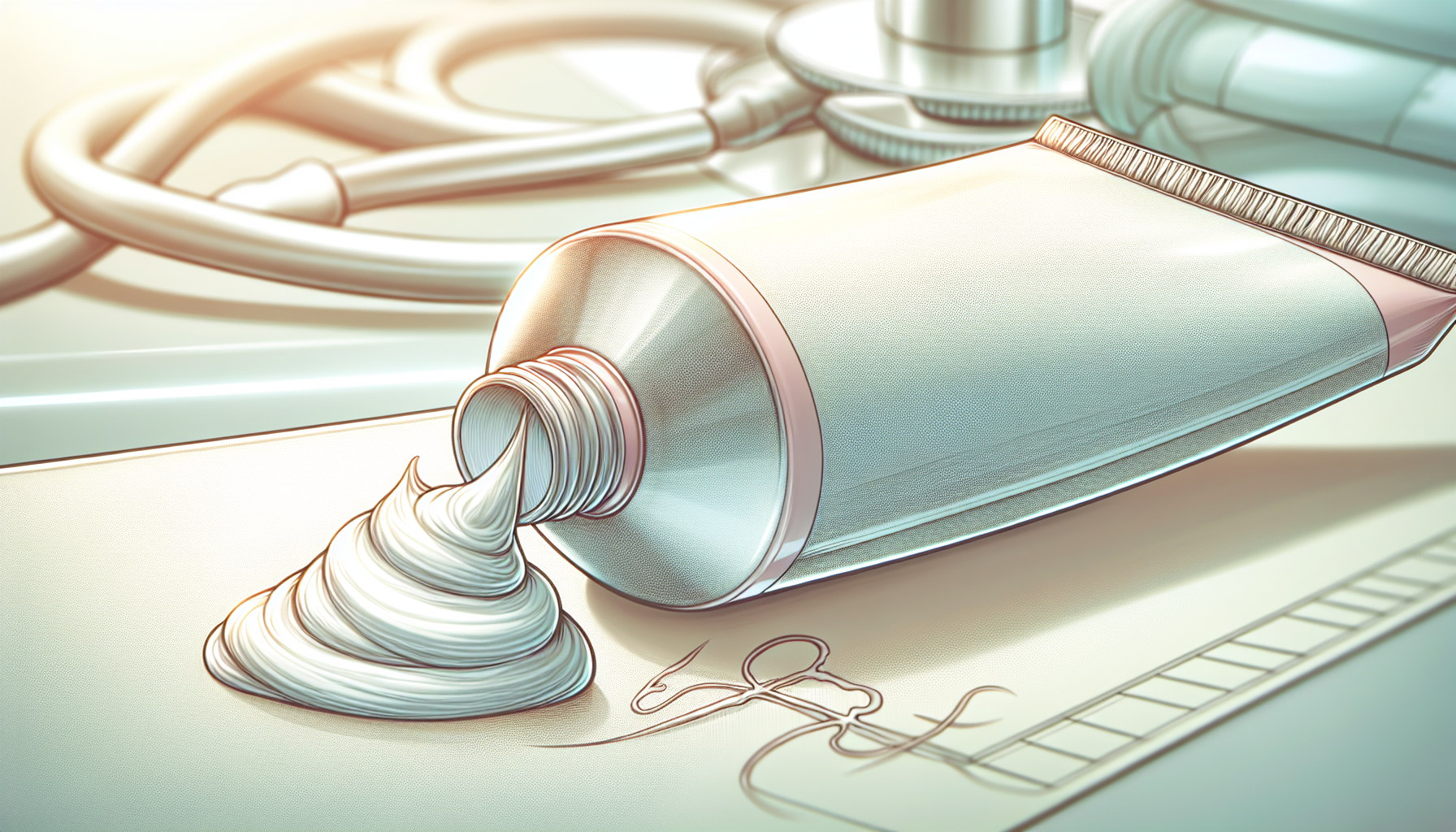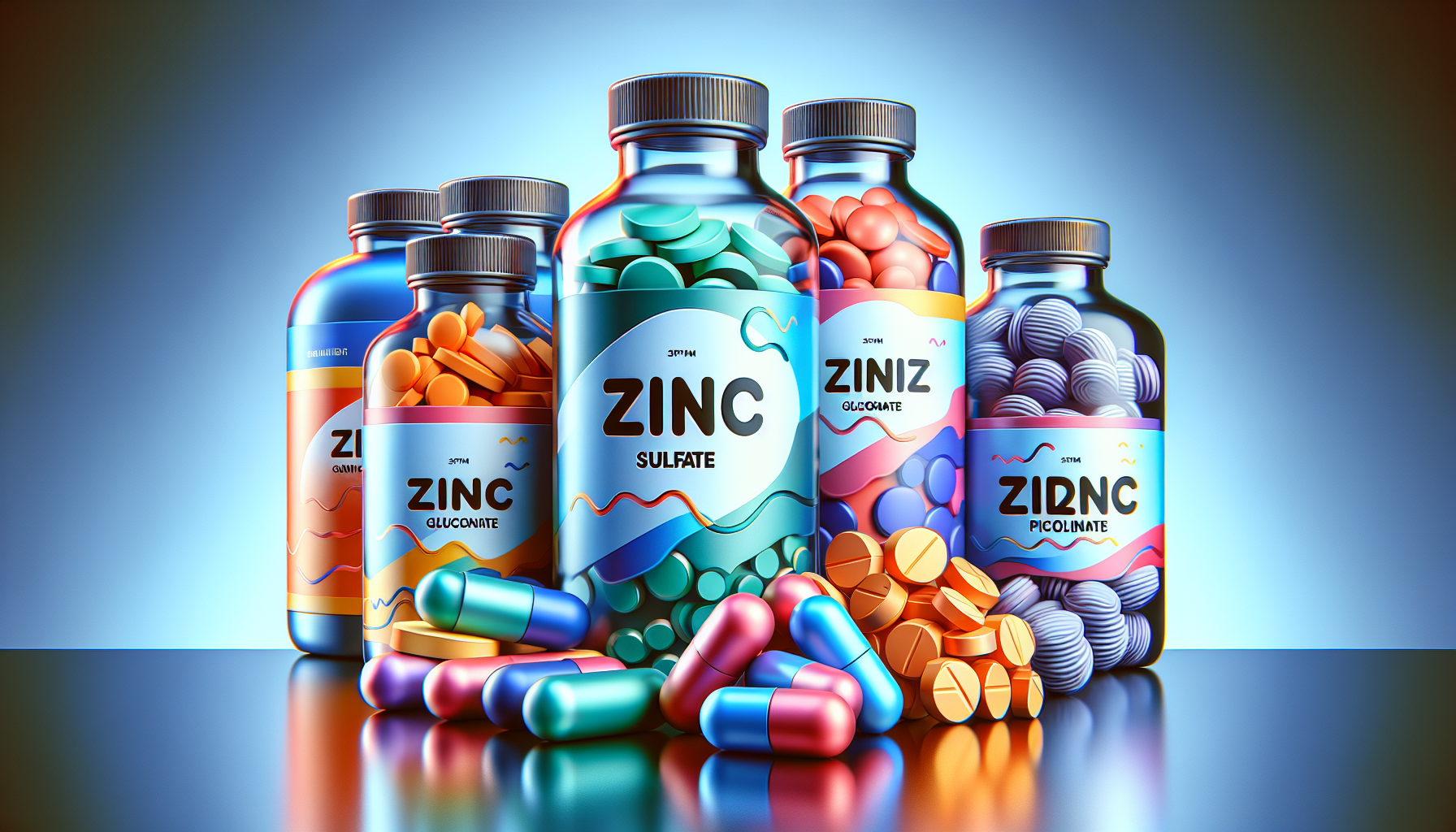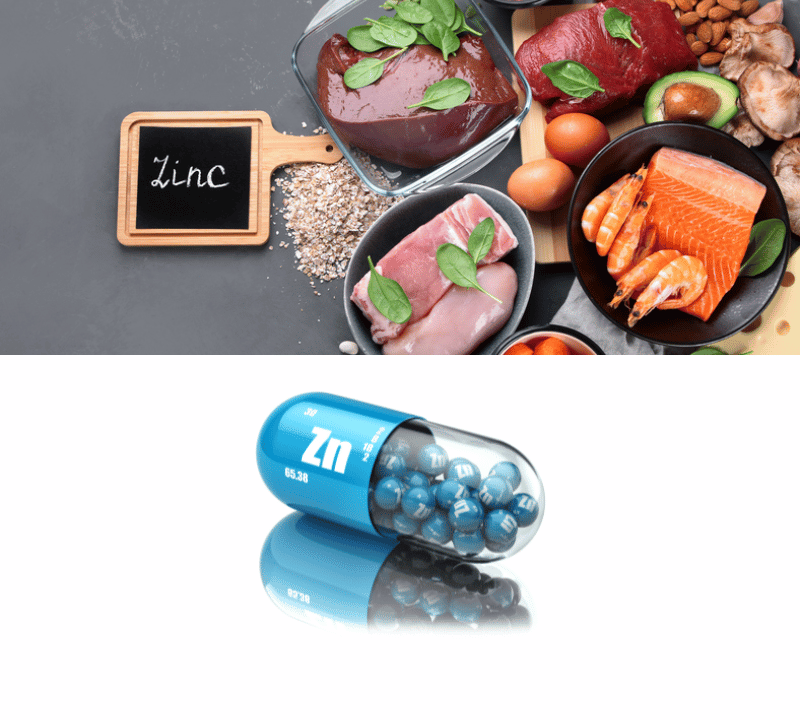Are you on a quest to find the best supplement for zinc? Look no further! This comprehensive guide is tailored to cut straight to the heart of your search, providing detailed comparisons of top zinc supplements and highlighting key benefits, side effects, and optimal dosages. By the end of this article, you'll be well-equipped to choose the zinc solution that best complements your health needs. Whether you’re concerned about zinc deficiency, seeking to enhance your immune function, or simply aiming to maintain overall wellness, we've got you covered.
Zinc is an essential mineral critical in immune function, cell growth, tissue repair, and maintaining your sense of taste and smell. It affects over 300 enzymatic reactions in the body. Often paired with selenium, another vital nutrient, zinc can significantly boost your overall health. Selenium supports the immune system, skin health, healthy eyesight, and the metabolic activity needed for antioxidants to work effectively. Together, these nutrients can form a powerful duo that enhances your nutrition and well-being. Get ready to delve into the world of zinc supplements and discover how they can transform your health!
Key Takeaways
- Zinc is essential for immune function, cell growth, tissue repair, and taste and smell maintenance, affecting over 300 enzymatic reactions in the body and, together with selenium, can be an important health booster.
- Zinc deficiency can manifest as weakened immunity, hair loss, loss of appetite, delayed healing, and can stem from poor absorption or increased bodily demands such as pregnancy.
- There are different forms of zinc supplements like zinc sulfate, acetate, gluconate, and oxide, each with advantages and potential side effects, with zinc picolinate noted for enhanced absorption.
Understanding Zinc and Its Importance

Zinc, a lustrous and sometimes overlooked mineral, is the cornerstone of a healthy functioning body. It is the unsung hero within our cells, facilitating over 300 enzymatic reactions that keep the wheels of our metabolism turning. Zinc plays a pivotal role in:
- Supporting a robust immune system
- DNA synthesis and cell growth
- Stabilizing blood sugar levels
- Aiding tissue repair
Elemental zinc is the invisible force behind these vital activities.
This essential mineral even touches the sensory parts of our lives, contributing to the maintenance of taste and smell, aspects of human experience we often take for granted.
The Role of Zinc in the Body
Within the intricate workings of the human body, zinc takes center stage in the immune system’s defense ensemble, wound healing, and the critical process of blood clotting. Its influence extends to thyroid function and vision, ensuring that the body’s regulatory and sensory functions perform their symphony flawlessly. Beyond these, zinc is a valiant guardian against oxidative stress, thanks to its antioxidant properties that shield our cells from the relentless onslaught of free radicals.
Imagine a life without the vividness of flavors or the subtleties of scents; zinc ensures that these senses remain sharp and attuned to the world around us.
Health Benefits of Zinc

The health benefits of zinc strike a chord with various aspects of our well-being. It bolsters the immune system, providing a line of defense that may help reduce inflammation and swiftly navigate the stormy seas of illness. Zinc gluconate supplements, often found in over-the-counter cold remedies, are acclaimed for enhancing immune function and hastening recovery from the common cold.
The mineral’s prowess extends to the canvas of our skin, promoting clear and healthy complexions and oftentimes playing a key role in the management of acne. In its topical form, zinc oxide offers a protective barrier against the perils of diaper rash and is a trusted ally in the battle against acne vulgaris. Zinc can emerge as a knight in shining armor for skin conditions that stubbornly resist conventional treatments, rapidly improving symptoms that mimic eczema. Zinc sulfate supplements are preventative warriors against deficiency and are adept at reducing the severity of blemishes on our skin’s landscape.
Moreover, zinc is a vigilant regulator of blood sugar, aiding those navigating the challenges of type 2 diabetes by improving the body’s responsiveness to insulin.
Identifying Zinc Deficiency

Even the most vigilant among us can fall prey to zinc deficiency, which stealthily undermines our health. It creeps in when the body struggles to absorb the mineral adequately, or our diets fail to meet the demand for this essential nutrient. Recognizing the signs of deficiency is akin to decoding a distress signal from within, alerting us to take corrective action.
Symptoms of Zinc Deficiency
The tale-tell signs of zinc deficiency are often subtle yet significant. Some common symptoms include:
- a weakened immune system
- hair loss
- loss of appetite
- delayed wound healing
- dulled sense of taste or smell
- depression
- weight loss
These symptoms are distressing and can severely impact the quality of life, making it imperative to heed these warnings and address any underlying zinc insufficiency.
Causes of Zinc Deficiency
But what causes this deficiency to take hold? The culprits vary, from malabsorption syndromes like Crohn’s disease or celiac disease, where the body’s ability to absorb zinc is compromised by inflammation, to life stages such as pregnancy, where the demand for zinc rises significantly.
Additionally, those grappling with alcohol use disorder may find their zinc levels sabotaged by alcohol’s interference with zinc absorption and its promotion of urinary zinc excretion.
Comparing Different Forms of Zinc Supplements
When it comes to replenishing zinc levels, the market offers a plethora of supplements, each donning a different form like a suite of armors, including:
- Zinc sulfate
- Zinc acetate
- Zinc gluconate
- Zinc oxide
The quest for the ideal dietary supplements is nuanced, as each form has its own advantages and roles in fortifying our well-being. Double-blind placebo-controlled studies are often conducted to determine these supplements' efficacy to provide unbiased results.
Zinc Oxide

Zinc oxide, a mineral with multifaceted talents, acts as a sentinel, guarding our skin against the sun's harsh rays with its ability to reflect and scatter ultraviolet light. It’s a shield against the sun’s fiery arrows and a soothing balm for besieged skin, forming a protective barrier that’s invaluable in treating various skin conditions with its topical applications.
Zinc Sulfate
On the other hand, zinc sulfate takes a more systemic approach, coursing through our veins to elevate our body’s zinc levels and stave off deficiency. Its prowess in combatting acne is well-documented, relieving those whose skin is a battleground for blemishes.
Though highly effective, caution is advised, as high doses of this ally can turn foe, manifesting adverse effects like fever and fatigue, reminding us that moderation is key.
Zinc Gluconate
Zinc gluconate, often hailed for its efficacy in treating a deficiency, is a stalwart protector of immune function. Interestingly, research has shown that the rise in serum zinc levels from zinc citrate and gluconate supplementation is minimal, blurring the line between these supplements and placebos. This has led to exploring alternative delivery methods, such as zinc gluconate nasal spray, to improve absorption and effectiveness.
Other Forms of Zinc Supplements
Beyond these, zinc picolinate has emerged as a form noted for its enhanced absorption, promising to deliver zinc more efficiently into our system. Additionally, some supplements weave copper and or selenium into their composition. Copper is added to prevent the potential depletion of this mineral caused by high zinc intake, showcasing the delicate balance of micronutrients in our body. Selenium, conversely, compliments zinc in support of the immune system, skin health, healthy eyesight, and the metabolic activity needed for antioxidants to work effectively.
Choosing the Right Zinc Supplement for You

The path to selecting the right zinc supplement is a personal journey, one that should be navigated with care, considering:
- the type of zinc
- dosage
- form of the supplement
- the product’s quality
Whether you’re drawn to capsules, tablets, or lozenges, your preference plays a significant role in this choice, ensuring that the supplement aligns with your lifestyle and dietary needs.
Striking a balance between health goals, preferences, and the specifics of the supplement will guide you to the zinc supplement that best complements your health portfolio. Considering supplemental zinc is essential in making an informed decision.
Factors to Consider
As you traverse the landscape of zinc supplements, several factors beckon for your consideration. Oral zinc supplements, for instance, offer a solution for those who find swallowing pills challenging, addressing both absorption rate and user convenience. Zinc lozenges and liquid zinc supplements can also be an option.
When zinc is part of a multivitamin, it’s wise to ensure it includes copper to avert the risk of creating a copper deficiency, and selenium is also beneficial as it complements zinc in immune function and skin health, for example.
For a more comprehensive solution, check out our article, “The Health Enthusiast's Dream: Five Of The Best Zinc Selenium Supplements You Should Know. “ This article introduces five top-rated zinc and selenium supplements, all from top-ranked manufacturers that meet the efficacy criteria discussed here. These products complement zinc with selenium and other vitamins, minerals, and nutrients, enhancing the important role of zinc in our overall health. This guide will help reduce your anxiety over evaluating the best zinc supplements on the market, providing a reliable resource for making an informed choice. You can see that article here.👇
Recommended Dosage and Upper Limit
Regarding dosage, the RDA for zinc is 11 mg daily for adult men and 8 mg for women, with an upper limit of 40 mg to prevent potential adverse effects. Most supplements on the market offer doses within the safe and effective range, providing a guideline for daily supplementation.
Addressing Zinc Supplement Side Effects and Interactions
Side effects or interactions are possible with every supplement, and zinc is no exception. Awareness of these can help you make informed decisions about your zinc intake and understand how it may interact with other aspects of your health regime.
Common Side Effects
The journey with zinc supplementation can sometimes be turbulent, with side effects such as nausea, vomiting, and stomach pain being common travel companions. High doses can lead to more serious issues like numbness and neurological problems, emphasizing the importance of adhering to recommended dosages.
An intake exceeding 40 mg daily can paradoxically weaken the immune system and create imbalances in cholesterol and copper levels.
Interactions with Medications
The waters of zinc supplementation can be muddied by its interactions with certain medications. For example, the effectiveness of antibiotics can be compromised when taken alongside zinc due to absorption issues. Moreover, zinc’s potential to diminish copper absorption underscores the importance of monitoring mineral levels when supplementing long-term.
Precautions and Safety Tips
Navigating zinc supplementation safely requires vigilance and adherence to recommended dosages and professional guidance where needed. To minimize stomach upset, zinc should be taken with meals and not combined with iron or calcium supplements to avoid decreased absorption.
Special care should be taken with children, and zinc nasal sprays should be avoided due to their association with loss of smell.
Enhancing Zinc Absorption and Bioavailability
To fully harness the power of zinc, one must focus on supplementation and strategies that enhance its absorption and bioavailability, ensuring that every milligram is used.
Food Sources High in Zinc
Zinc’s culinary allies are abundant, with animal-based foods leading its dietary crusade. Some examples include:
- Oysters, which offer a substantial dose in a single serving
- Red meats, poultry, and seafood like crab and lobster all provide significant amounts
- Plant-based options such as legumes, nuts, and grains, with chickpeas, hemp seeds, cashews, and oats being noteworthy examples
These foods contribute to our dietary zinc intake and help us meet our daily requirements.
Vegetarians and vegans may need to be more strategic in their dietary choices to ensure adequate zinc absorption.
Strategies for Improving Zinc Absorption
Taking the right zinc supplement can be a game-changer in absorption efficiency. Zinc picolinate, for instance, is recognized for its superior absorption. Including chelating agents in some supplements can also play a pivotal role in ensuring that zinc is readily absorbed into the bloodstream.
Wrapping Up Our Discussion On Zinc!
Embarking on a journey to optimize your zinc levels is an empowering step toward safeguarding your health. This comprehensive guide has provided the essential information to make informed decisions about zinc supplementation. From understanding the pivotal roles of zinc in immune function, cell growth, and tissue repair to recognizing the signs of zinc deficiency and comparing various zinc supplements, you are now well-equipped to navigate the complexities of dietary supplements. Whether you’re considering oral zinc supplements, zinc lozenges, or forms like zinc gluconate and zinc picolinate, knowing how to enhance zinc absorption and manage the right zinc dosage is crucial for achieving optimal health benefits.
In addition to zinc, it’s important to consider the inclusion of other essential minerals like copper and selenium in your supplementation regimen. Copper helps prevent copper deficiency when taking high doses of zinc, while selenium complements zinc in supporting immune function and overall well-being. Top-rated zinc supplements, including those featured in our related article, incorporate these nutrients to enhance their efficacy. By being aware of the synergistic effects of these minerals and making well-informed choices, you can ensure that your zinc intake not only meets but exceeds your health goals, ultimately improving your serum zinc levels and overall nutritional status.
Still have questions? Here are Brief Answers to FAQs
What are the signs that I might have a zinc deficiency?
If you're experiencing decreased immunity, unexplained hair loss, poor appetite, slow wound healing, diminished sense of taste or smell, or feelings of depression, these could be signs of a potential zinc deficiency. Pay attention to these symptoms.
Are there any side effects to taking zinc supplements?
Yes, taking zinc supplements can lead to gastrointestinal issues like nausea and stomach pain, and long-term use of high doses can cause more serious problems such as altered copper and cholesterol levels and neurological symptoms. Be cautious when taking zinc supplements for extended periods.
Can zinc supplements interact with medications?
Zinc supplements can interact with certain medications, such as antibiotics, potentially interfering with their absorption. It's crucial to consult with a healthcare professional about potential interactions.
How much zinc should I take daily?
You should take 11 mg of zinc daily if you're an adult man or 8 mg if you're an adult woman. It's important not to exceed the daily limit of 40 mg unless advised by a healthcare provider.
What foods are high in zinc?
Zinc-rich foods include oysters, red meats, poultry, seafood like crab and lobster, legumes, nuts, and grains like chickpeas, hemp seeds, cashews, and oats. These are great options to incorporate into your diet.
Thanks for taking this journey with us to explore the best zinc supplement. If you want to add to your library of knowledge, you should check out the other article because helping you choose the right supplement is a huge time-saver. You won't be sorry you looked because adding to your knowledge arsenal never hurts!
Also, please return soon to check out our next review of another incredible supplement – we’re always looking out for YOU!
*We are NOT qualified medical advisors. The content here is only based on our personal opinions and research and should NOT be used as a substitute for a healthcare professional's advice!











Member discussion